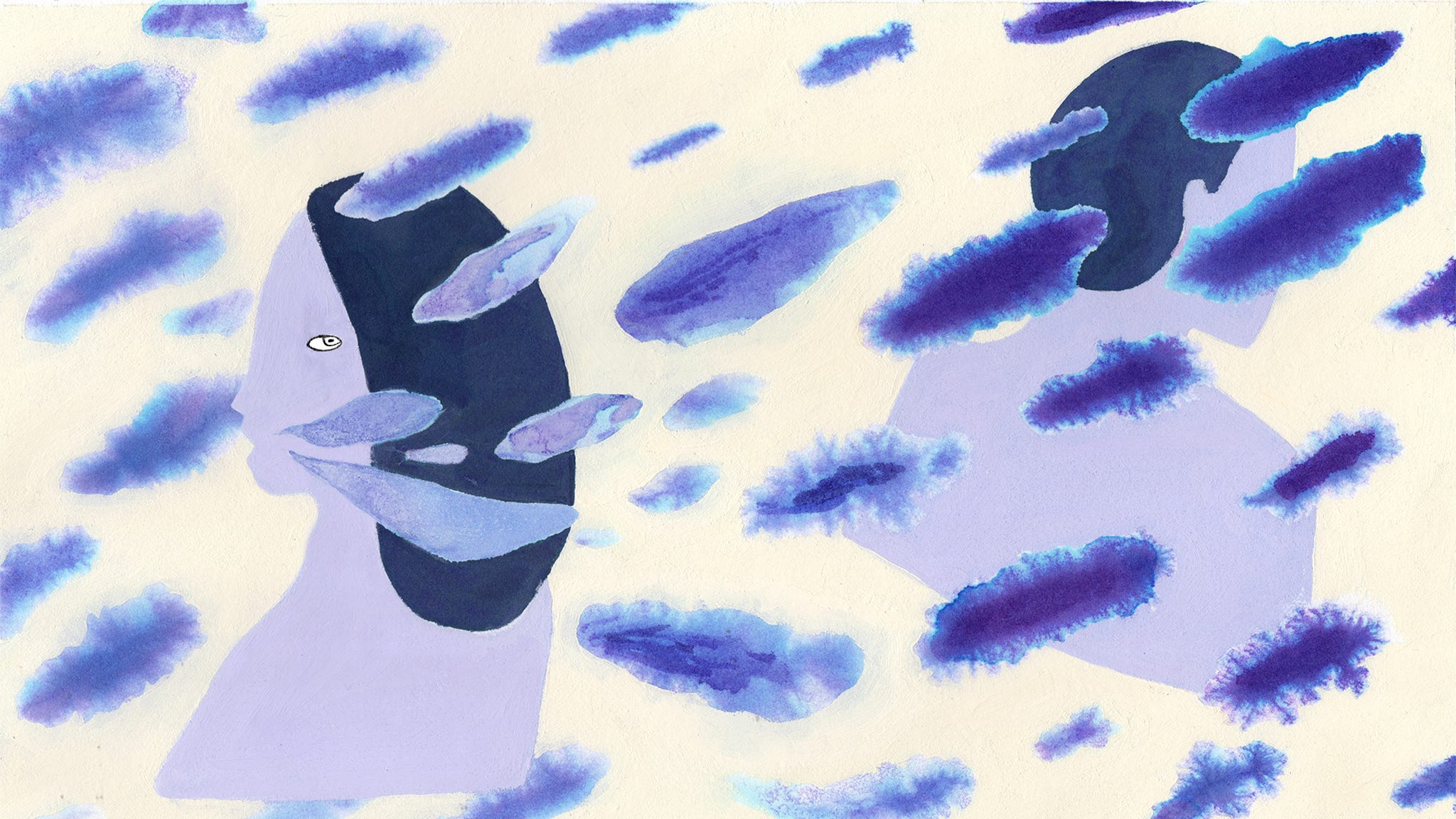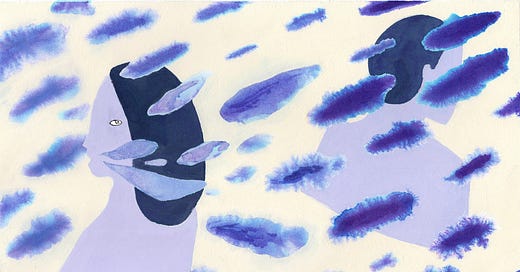Losing the Language of Love
You lose a lot when a loved one dies, but for me the most impossible thing to bear was watching my husband’s secret lingo and our cheeky private jokes slowly slip from existence.

Illustration by Paige Mehrer
When my parents hosted friends and family for Sunday dinners, much of the conversation was in the Sicilian dialect of their youth. Over anisette and almonds, my father transformed from postal clerk to carefree vagabond; my mother, a cafeteria worker, was once again the Belle of Pittston who snared the biggest catch in the neighborhood. A word or a phrase I couldn’t understand would trigger a round of laughter, a meaningful glance across the table, or a resigned shrug.
When my father died my mother became the last of her generation. She entered a retirement home where she told me she liked her new friends, but there was no one who spoke her dialect. “I can’t remember some of my words,” she said, “I’m losing my Italian.”
She didn’t just lose words; she lost a private land we kids only glimpsed, one with a passport stamped with words and phrases, personal victories, hard-won lessons, and folk wisdom acquired in fifty years of marriage.
Keep reading with a 7-day free trial
Subscribe to Narratively to keep reading this post and get 7 days of free access to the full post archives.



